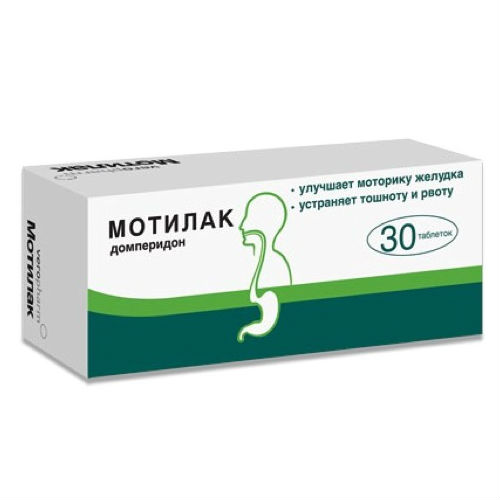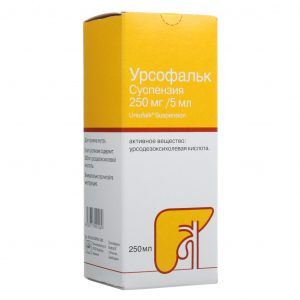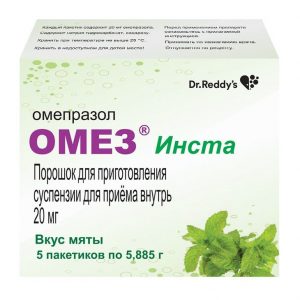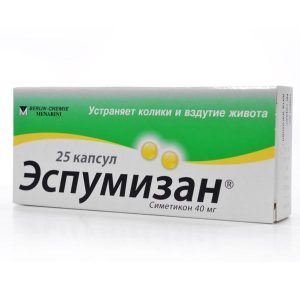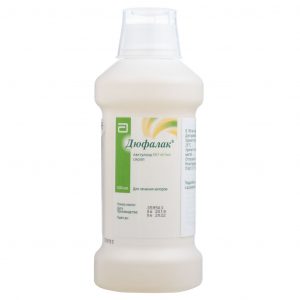Description
Latin name
Motilak
Release form
tablets
packaging 30 pcs
Pharmacological action
Motilak – antiemetic.
Prokinetic. It increases the duration of peristaltic contractions of the antrum of the stomach and duodenum, improves the functioning of the stomach, accelerating its emptying if this process slows down, increases the tone of the lower esophageal sphincter, and eliminates the development of nausea and vomiting.
Domperidone penetrates poorly through the BBB, so the use of domperidone is rarely accompanied by extrapyramidal side effects, especially in adults, but domperidone stimulates the release of prolactin from the pituitary gland.
Its antiemetic effect is probably due to a combination of peripheral (gastrokinetic) action and antagonism to dopamine receptors in the trigger zone of chemoreceptors. Domperidone has no effect on gastric secretion.
Pharmacokinetics
Absorption
After oral administration, it is rapidly absorbed from the digestive tract. It has low bioavailability (about 15%). Reduced acidity of the gastric contents reduces the absorption of domperidone. Cmax in plasma is reached after 1 h.
Distribution of
Domperidone is widely distributed in tissues, its concentration in the brain tissue is low. Plasma protein binding is 91 93%.
Metabolism
Intensively metabolized in the intestinal wall and liver.
Excretion
It is excreted through the intestines (66%) and kidneys (33%), unchanged, respectively, 10 and 1% of the dose. T1 / 2 – 7 9 hours (with severe renal failure, it lengthens).
Indications
A complex of dyspeptic symptoms, often associated with delayed gastric emptying, gastroesophageal reflux, esophagitis
, feeling of fullness in the epigastrium, sensation of bloating, pain in the upper abdomen,
burping, burping, or oral cavity.
Nausea and vomiting of a functional, organic, infectious origin caused by radiotherapy, drug therapy or a dietary disorder.
A specific indication is nausea and vomiting caused by dopamine agonists if used for Parkinson’s disease (such as L-dopa and bromocriptine).
Contraindications
Motilak is contraindicated in patients with established intolerance to the drug.
Motilak should not be used when stimulation of the motor function of the stomach can be dangerous, i.e. with gastrointestinal bleeding, obstruction or perforation.
Motilak is also contraindicated in patients with a prolactin-secreting pituitary tumor (prolactinoma).
Use during pregnancy and lactation
When administered to animals at doses up to 160 mg / kg / day, it does not have teratogenic effects.
Use in the first trimester of pregnancy is possible if the expected effect of therapy exceeds the potential risk to the fetus. There is currently no evidence of an increased risk of malformations in humans.
In women, domperidone concentrations in breast milk are 4 times lower than the corresponding plasma concentrations. It is not known whether this level has a negative effect on newborns.
Therefore, if the mother is taking Motilak, breast-feeding is not recommended, unless the expected benefit justifies the potential risk.
Composition
1 tablet contains:
Active ingredient:
domperidone 10 mg
Excipients:
starch starch
Dosage and administration
Inside, 15 20 minutes before meals.
Adults in cases of acute nausea or vomiting: 20 mg 3-4 times a day and at bedtime.
In case of chronic dyspeptic symptoms: 10 mg (1 tablet) 3-4 times a day and, if necessary, before bedtime. If necessary, the specified dose is doubled.
In patients with severe renal impairment during repeated prescription, the frequency of administration should not exceed 1-2 times a day, there may be a need to reduce the dose of the drug (depending on the severity of the failure).
Side effects
Side effects are rare. There have been exceptional cases of transient bowel spasms.
Extrapyramidal effects are rarely seen in children and are an exception for adults. These phenomena are completely reversible and spontaneously disappear after discontinuation of treatment.
Since the pituitary gland is outside the BBB, Motilak can induce an increase in plasma prolactin levels. In rare cases, this hyperprolactinemia can stimulate the appearance of galactorrhea and gynecomastia.
Rare allergic reactions like rash and urticaria have been reported.
Drug Interaction
Anticholinergic drugs neutralize action, antacid and antisecretory drugs decrease bioavailability, cytochrome P450 CYP3A4 isoenzyme inhibitors (antifungal drugs of the azole group, macrolide group antibiotics, HIV protease inhibitors, nefazodone) increase plasma levels.
The effect on the absorption of concurrently used drugs with sustained release of the active substance is not excluded.
Domperidone does not affect the level of paracetamol and digoxin in the blood.
Overdose
Symptoms: drowsiness, disorientation, extrapyramidal reactions (mainly in children).
Treatment: Activated charcoal and close monitoring is recommended in case of overdose. Anticholinergics, drugs, used for the treatment of parkinsonism or antihistamines may be effective in the occurrence of extrapyramidal reactions.
Storage conditions
In a dry, dark place at a temperature of no higher than 25 ° C.
Expiration
2 Year
Active ingredient
Domperidone
Formulation
Dosage form
tablets
